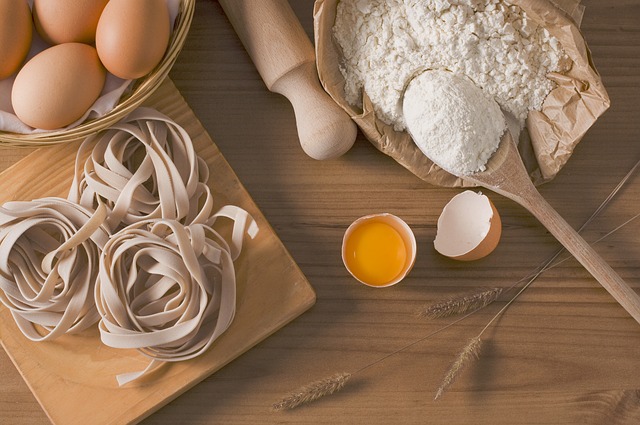What you should eat during Pregnancy
Proteins are essential at pregnancy, and a good protein shake can be a good source of these important mineral. But protein powder is not all that safe as you think. Just like any other drink, they have their shortcomings too. And these few downsides of protein shake should not be trivialized. They can be quite effective, so be careful the next time you grab a glass.
Heavy metals in proteins
Most, if not all proteins, have some naturally occurring trace heavy metals. Veggie proteins tend to have higher heavy metal counts as do lower quality proteins. Animal based proteins tend to have much lower heavy metal counts; whey and whey isolate proteins in particular. If you are going to supplement your protein with protein powder, be sure it comes from a quality source.
Sweeteners to avoid
The American Pregnancy Association cautions women who are pregnant or nursing to not take products that contain cyclamate or saccharin. Some nutritionists suggest women who are pregnant or nursing to stay away from artificial sweeteners that haven’t been thoroughly studied on how they might impact a woman who is pregnant or nursing. Rebaudioside A (Stevia), acesulfame potassium (Sunett), aspartame (Equal or NutraSweet), and sucralose (Splenda) sweeteners are all generally recognized as being safe by the Food and Drug Administration and American Pregnancy Association.
Other considerations
The final concern with protein supplements relates to what other ingredients or additives it contains and if it is potentially harmful to you or your baby. Products that are marketed to athletes might contain something that is not meant for pregnant or nursing women. Most protein products that are not safe for women who are pregnant or nursing come with a warning label that will say just that. The safest approach is to consult a nutritional expert to ensure you are not taking something that could be harmful.
Sourced From: http://mommi.com/education/protein-during-pregnancy/protein-powder-safe-pregnancy/
 Normal pregnancy cravings may be overwhelming. But whatever they are coaxing you into, there are some drinks you better stand the urge than give into. From alcohol to some soft drinks, unpasteurized milk and juice are all drinks you should stay away from at all costs during pregnancy.
Normal pregnancy cravings may be overwhelming. But whatever they are coaxing you into, there are some drinks you better stand the urge than give into. From alcohol to some soft drinks, unpasteurized milk and juice are all drinks you should stay away from at all costs during pregnancy.
Alcohol: Occasional indulgences are fine, but if you cross the line know about its perils too. ‘Too much alcohol intake during pregnancy can lead to poor growth and improper brain development in the foetus. It can also lead to abnormal facial features in the baby and mental retardation,’ informs Deepshikha. Even if you restrict yourself to one drink a day your baby might still be at the risk for having problems with learning, speech, attention span, language, and hyperactivity after birth.
Soft drinks: They are great thirst quenchers, we all agree. But now its better you go natural and cut out on fizzy drinks. ‘Soft drinks have caffeine in their content and some can also have chemicals called quinine in them,’ says Deepshikha. So caffeine and chemicals both in one drink can cause double damage if taken in large quantities.
Unpasteurized juices or milk: ‘Make sure you read labels before picking up them. Avoid any juice or dairy product that says unpasteurized on the label. These products can contain bacteria in them, which can lead to food-borne disease in the mother. If it crosses over the placenta and reaches the fetus it can hamper neurological development,’ says Deepshikha.
Sourced From: http://www.thehealthsite.com/pregnancy/8-drinks-or-beverages-to-avoid-during-pregnancy/
Food is just inevitable, whether it’s during pregnancy or not. But when expectant, there are these foods you will need to think again before going for them. They can pose a real threat not only to you, but also to your unborn child.
Certain types of seafood
Although the mercury in seafood is not much of a concern for adults, it can be if you are pregnant or are planning to become pregnant. If you regularly eat fish containing higher levels of mercury, the substance may accumulate in your bloodstream. In turn, too much mercury in the bloodstream can damage your baby’s developing brain and nervous system.
Foods containing listeria
While some types of seafood are recommended, pregnant women must also be cautious of listeria—a type of bacteria that infects humans through contaminated food and can induce a miscarriage. According to American Pregnancy, listeria has the ability to cross the placenta and may infect the baby, which could lead to infection or blood poisoning and may be life-threatening. Refrigerated, smoked seafood often labeled as lox, nova style, kippered, or jerky should be avoided entirely because it may be contaminated with listeria.
Undercooked meat, poultry, and eggs
According to the Mayo Clinic, during pregnancy, women are at increased risk of bacterial food poisoning. Similarly, raw eggs can be contaminated with harmful bacteria. To be on the safe side, avoid foods made with raw or partially cooked eggs. Some foods containing partially cooked eggs include eggnog, homemade ice cream and custards, raw batter (cookie dough), freshly made or homemade hollandaise sauce, and even Caesar salad dressing.
Sourced from: http://www.india.com/wellness-and-beauty/4-foods-to-avoid-during-pregnancy-560424/






